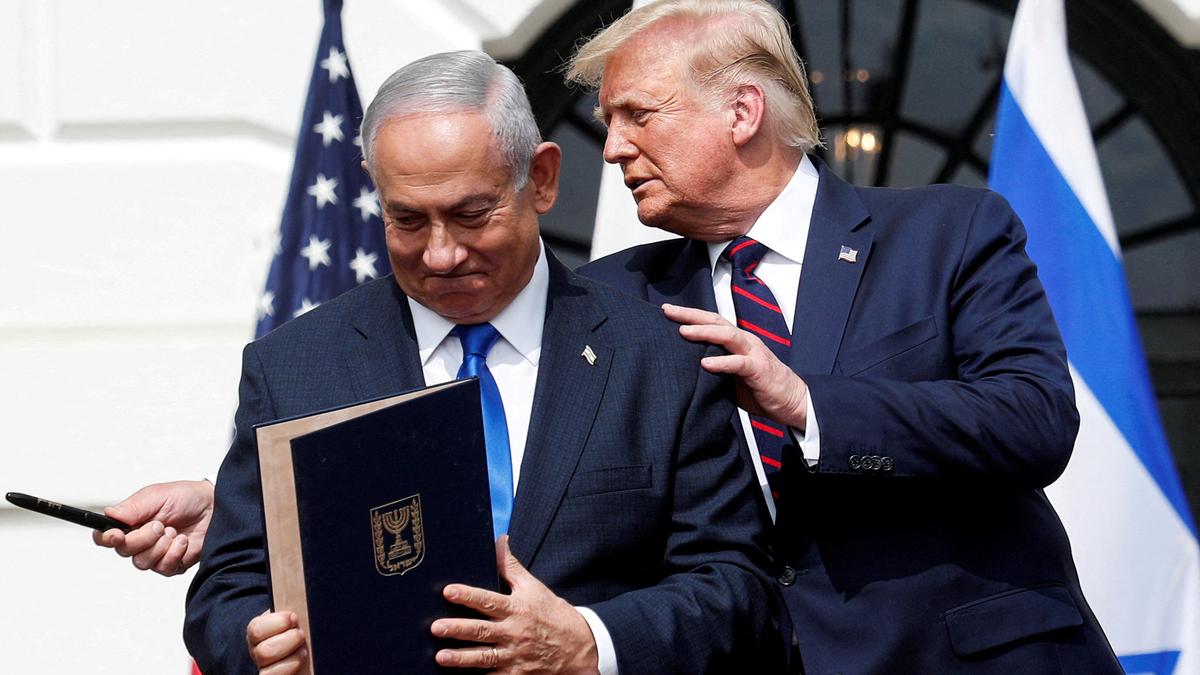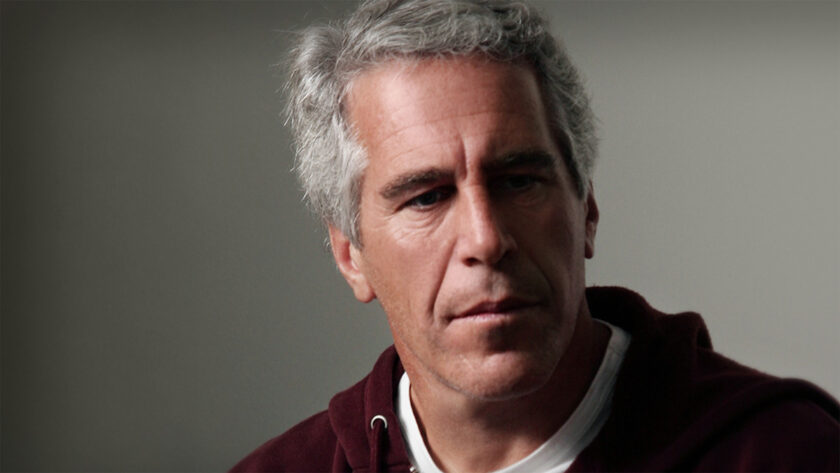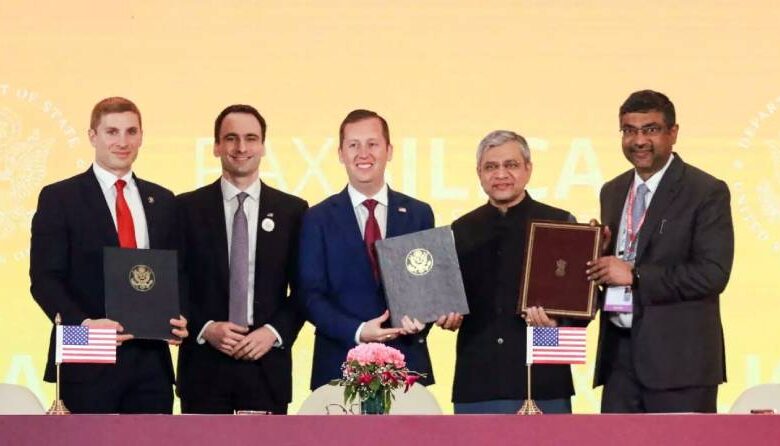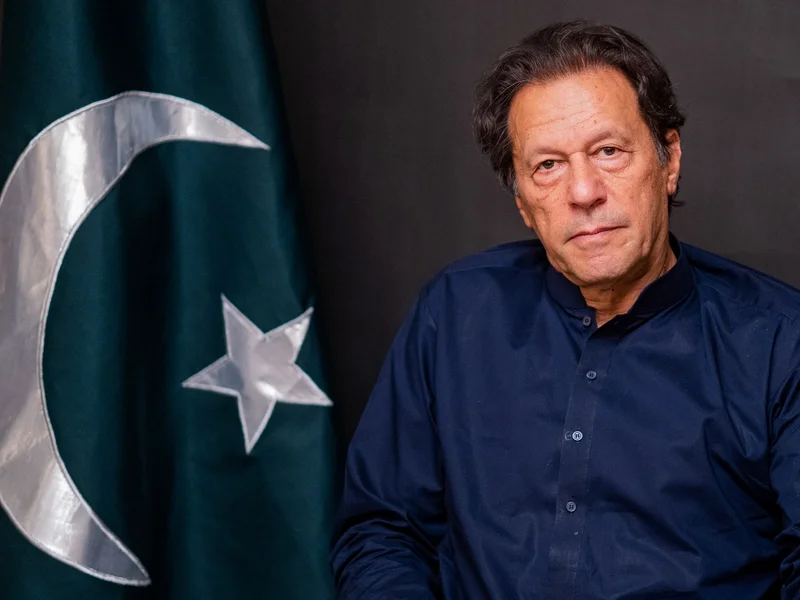Washington DC / New Delhi — Former U.S. President Donald Trump is back in the spotlight — this time, not for his controversial statements or decisions, but because Israeli Prime Minister Benjamin Netanyahu has nominated him for the Nobel Peace Prize. The announcement, made during Netanyahu’s visit to Washington, has stirred political waters worldwide, triggering reactions from allies, critics, and even distant hopefuls aiming to ride the wave of global attention.
What began as a strategic endorsement by Israel soon became a political spectacle, with former Delhi Chief Minister and Aam Aadmi Party (AAP) convener Arvind Kejriwal also expressing his own interest in the prestigious prize — despite the Nobel Committee never having awarded a peace prize for governance or administrative performance.
Netanyahu Surprises Trump with Nobel Nomination
While meeting with Trump at the White House, Netanyahu hailed Trump’s role in advancing global peace, particularly referencing his contribution to the Abraham Accords, which normalized diplomatic relations between Israel and several Arab nations.
“President Trump, you have not only led the free world but taken major strides in peace and justice,” Netanyahu said. “On behalf of millions of supporters worldwide, I have written to the Nobel Committee nominating you for the Peace Prize — a most deserving honor.”
Trump, visibly surprised, responded with a smile: “I didn’t know about this — thank you very much!” He also hinted at optimism over a potential ceasefire in Gaza, noting that key negotiators were heading to Doha for talks.
Trump’s Turbulent Legacy
Though praised by allies, Trump’s path to a peace prize remains mired in controversy. His presidency was defined by frequent misinformation, with The Washington Post once documenting over 30,000 false claims during his term. His announcement of a ceasefire between India and Pakistan — which neither country confirmed — also raised eyebrows globally.
In a 2025 interview with Time Magazine, Trump reportedly made 32 false or misleading statements, again inviting criticism. These patterns of misrepresentation, coupled with policy inconsistency, have made Trump both a polarizing and unpredictable figure on the world stage.
Adding to the drama, Elon Musk, once a top Trump ally and financier, has distanced himself. Disillusioned with Trump’s governance, Musk resigned from his government role and launched the “America Party”, indicating a political split.
Kejriwal’s ‘Nobel Dreams’ Resurface
Back in India, Arvind Kejriwal has made headlines for his renewed desire to be considered for the Nobel Peace Prize — a sentiment he has expressed on previous occasions.

Speaking at a book launch in Mohali, Punjab, the former Delhi CM said, “Despite administrative challenges and constant interference, we still managed to perform in Delhi. That’s why I believe I deserve a Nobel Prize for governance.”
However, no such category exists. The Nobel Prizes are awarded in six fields — Peace, Literature, Physics, Chemistry, Medicine, and Economic Sciences. Governance and administration have never been recognized as independent categories for Nobel awards.
Kejriwal, once known as a champion of the “common man”, is now frequently accused of abandoning that image. As Delhi CM, he allegedly indulged in VIP privileges, built a controversial luxury residence dubbed ‘Sheesh Mahal’, and faced multiple corruption allegations involving his ministers. He himself was jailed briefly while in office and later ousted in the 2025 elections. Still, he resisted vacating the CM bungalow — until legal pressure forced his hand.
Now based in Punjab, Kejriwal has continued to influence local politics. But each time a high-profile global issue arises, he seemingly finds a way to stay in the news — even if that means invoking the Nobel Prize.
The Reality of the Nobel Prize
Founded in 1901 in memory of Alfred Nobel, the prizes have been awarded 627 times to 976 individuals and 28 organizations. The Peace Prize, often the most debated, is typically awarded for significant contributions to conflict resolution, diplomacy, or humanitarian efforts — not domestic governance.
Thus, while world leaders may rally behind allies like Trump for strategic gains, calls for Nobel consideration by politicians like Kejriwal remain largely symbolic, reflecting political ambition rather than realistic eligibility.
Politics and the Prize
As nominations and endorsements make headlines, the Nobel Peace Prize continues to be not just a recognition of global contribution — but a stage for political theatre. Whether it’s Netanyahu backing Trump, or Kejriwal making rhetorical leaps, the prize remains a symbol many chase — but few attain. In the race to be seen as ‘special’, even the most unlikely candidates try their luck, hoping for validation on the world’s biggest stage.









